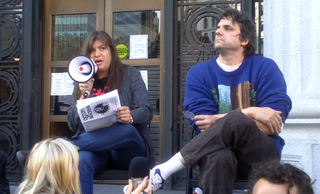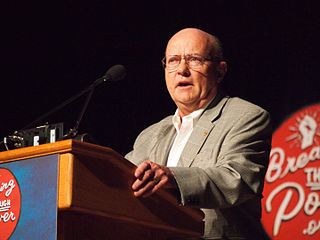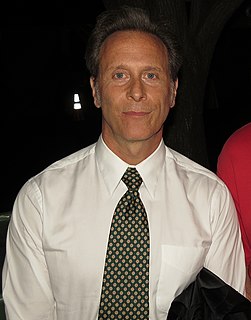Top 875 Technological Quotes & Sayings - Page 15
Explore popular Technological quotes.
Last updated on April 15, 2025.
We had learned how to invent things, and the question of why we invent things receded in importance. The idea that if something could be done it should be done was born in the nineteenth century. And along with it, there developed a profound belief in all the principles through which invention succeeds: objectivity, efficiency, expertise, standardization, measurement, and progress. It also came to be believed that the engine of technological progress worked most efficiently when people are conceived of not as children of God or even as citizens but as consumers-that is to say, as markets.
Wars between states and people seem to have existed under all historical systems for as long as we have some recorded evidence. War is quite clearly not a phenomenon particular to the modern world-system. On the other hand, once again the technological achievements of capitalist civilization serve as much ill as good. One bomb in Hiroshima killed more people than whole wars in pre-modern times. Alexander the Great in his whole sweep of the Middle East could not compare in destructiveness to the impact of the Gulf War on Iraq and Kuwait.
Our enthusiasm for digital technology about which we have little understanding and over which we have little control leads us not toward greater agency, but toward less...We have surrendered the unfolding of a new technological age to a small elite who have seized the capability on offer. But while Renaissance kings maintained their monopoly over the printing press by force, today's elite is depending on little more than our own disinterest.
Executive Severance, a laugh out loud comic mystery novel, epitomizes our current cultural moment in that it is born from the juxtaposition of authorial invention and technological communication innovation. Merging creative text with new electronic context, Robert K. Blechman's novel, which originally appeared as Twitter entries, can be read on a cell phone. His tweets which merge to form an entertaining novel can't be beat. Hold the phone; exalt in the mystery-engage with Blechman's story which signals the inception of a new literary art form.
Our colonizers have taught us to believe that our health has improved because of Western medicine, Western foods, and Western technology. In a society that values progress, our colonizers taught us that conditions in the world are perpetually improving, that with each new technological advancement, each new discovery, each new way to utilize resources, each new way to alter the environment, that the world is getting better, that it is advancing. These are all lies.
I'm trying to make a primitive painting. I'm trying to summon the archaic. I want to enter into a primitive situation. This is my protest against the sensory deprivation that we experience, which is due to this tendency towards globalization, towards homogenization, towards the generic - a technological standard rather than an aesthetic standard. I'm mining history, trying to regenerate a pictorial situation that is more humanistic. It's not about commodification, it's not about fitting into some sort of corporate structure. It's opposed to that direction.
But in the West today, we see a free world that has achieved a level of prosperity and well-being unprecedented in all human history. In the Communist world, we see failure, technological backwardness, declining standards of health, even want of the most basic kind - too little food. Even today, the Soviet Union still cannot feed itself. After these four decades, then, there stands before the entire world one great and inescapable conclusion: Freedom leads to prosperity. Freedom replaces the ancient hatreds among the nations with comity and peace. Freedom is the victor.
But let there be no misunderstanding: it is not that a real man, the object of knowledge, philosophical reflection or technological intervention, has been substituted for the soul, the illusion of theologians. The man described for us, whom we are invited to free, is already in himself the effect of a subjection more profound than himself. A 'soul' inhabits him and brings him to existence, which is itself a factor in the mastery that power exercises over the body. The soul is the effect and instrument of a political anatomy; the soul is the prison of the body.
Bible Gateway has created a way to make the Word of God accessible and reflective of the technological world we live in. Bible Gateway has proven that embracing innovation can bring people closer to God. I've used unconventional ways to bridge the gap between the secular and the spiritual worlds in my own career, so I admire Bible Gateway's bold, brilliant, and effective way of contributing to the spiritual journeys of many people around the world.
In 2010, you have roughly 38 billion dollars spent by government on cyber and telecoms security and another 60 billion or so by private corporations. So approximately 100 billion dollars spent on security, mostly on technological solutions, which the corporates are offering governments in particular; it's a very high growth area. So everyone is climbing over each other to get the contracts for government procurement on this. There is undoubtedly an element of this and that's what encourages, in part, the whole idea of locking down the Internet.
We have all kinds of limitations as human beings. I mean we can't see the whole electromagnetic spectrum, we can't see the very small, we can't see the very far. So we compensate for these short comings with technological scaffoldings. The microscope allows us to extend our vision into the microsphere. The telescope allows us to extend our vision into the macrosphere, the Hubble Space Telescope extends our optic nerve into space, and it allows us to mainline space and time through our optic nerve.
An mp3 is a compressed form of data. It's not the full spectrum. It's never going to sound as good as a record. I think one thing people forget is that every technological advance we fetishize had its place in time. CDs are usually an hour long because that's the amount a CD could hold - not because that's the optimal amount of time for any given musical expression. Side one and side two? That's a product of vinyl. But that's not necessarily dramatic form - you could argue that that was three acts.
In the end, the fate of children depends on our ability to use technology constructively and carefully. The connection of childrenand technology is not simply a matter of seat belts, safe toys, safe air, water and food, additive-free baby foods, or improved television programming. These are all important issues, but to stop here is to forget that today's children will soon be adults. Technological decisions made today will determine, perhaps irrevocably, the kind of physical and social world we bequeath them and the kind of people they become.
What good is it to continue to focus on the exterior technological wonders before us - from indefinite life extension to computer/mind interlinks to unlimited zero-point energy to worm-hole intergalactic space travel - if all we carry with us is an egocentric red-mem Nazis and KKK? Do we really want Jack the Ripper living 400 years, zipping around the country in his hypercar, unleashing misogynistic nanorobots? Exterior developments are clearly a concern; how much more so are interior developments - or lack there of.
The Cheney team had, for example, technological supremacy over the National Security Council staff. That is to say, they could read their e-mails. I remember one particular member of the N.S.C. staff wouldn't use e-mail because he knew they were reading it. He did a test case, kind of like the Midway battle, when we'd broken the Japanese code. He thought he'' broken the code, so he sent a test e-mail out that he knew would rile Scooter [Libby], and within an hour Scooter was in his office.
Although our grammar schools are teaching a whole generation computer language to adjust to the technological needs of a Stage II [post survival-focused] society, we have neglected to teach this generation relationship language and conflict resolution skills to address the social and psychological needs of a Stage II society. And when it is taught, in countries like Germany, although called social competence it focuses on workplace teamwork - still on survival, breadwinner oriented work goals.
The greatest existential risks over the coming decades or century arise from certain, anticipated technological breakthroughs that we might make in particular, machine super intelligence, nanotechnology and synthetic biology. Each of these has an enormous potential for improving the human condition by helping cure disease, poverty, etc. But one could imagine them being misused, used to create powerful weapon systems, or even some kind of accidental destructive scenario, where we suddenly are in possession of some technology that's far more powerful than we are able to control or use wisely.
Industrial vomit...fills our skies and seas. Pesticides and herbicides filter into our foods. Twisted automobile carcasses, aluminum cans, non-returnable glass bottles and synthetic plastics form immense middens in our midst as more and more of our detritus resists decay. We do not even begin to know what to do with our radioactive wastes - whether to pump them into the earth, shoot them into outer space, or pour them into the oceans. Our technological powers increase, but the side effects and potential hazards also escalate.
What does interest me is how difficult my culture seems to find it to look the dark side of life directly in the eye. It seems to me that if we look back at mediaeval culture, for example, we see a society which faces the reality of death and pain and limitation, because it has to. Our society, which is progressive and technological and seems to have a slightly fanatical utopian edge to it, gets very uncomfortable when anybody highlights the dark side of humanity, or the world we have built, or what we are doing to the rest of life on Earth.
What keeps me up at night in a negative way is, if we don't solve the problems of the human heart and of the human head, of human psychology, there is no technological solution so great that it can prevent the world that is coming, and a world of suitcase bombs or of the ability to pollute the planet in a way that it cannot recover, of global warming and the rest. We've created through science and technology a different world that has frightening sides to it, and psychology and behavioral science has to be part of this. We're going to have to find a way to humanize the culture itself.
America's abundance was created not by public sacrifices to the common good, but by the productive genius of free men who pursued their own personal interests and the making of their own private fortunes. They did not starve the people to pay for America's industrialization. They gave the people better jobs, higher wages, and cheaper goods with every new machine they invented, with every scientific discovery or technological advance- and thus the whole country was moving forward and profiting, not suffering, every step of the way.
I would ask, "How can one have a technological society without research? How can one have research without researching dangerous areas? How can one research dangerous areas without uncovering dangerous information? How can you uncover dangerous information without it falling into the hands of insane people who will sooner or later destroy the human race, if not the whole of life on earth?" Who knows? God only knows!
Right now, the technological world plus God or spirituality is evolving. I think America has become a little bit too corrupt, government's a little too corrupt, too greedy. Many corporations are too greedy. The labor unions are too greedy. That effects charities and religious organizations. I just think it's greed. That's why, in 1985, I had to figure out how to give before I received. The more I focus on giving, for less and less, the more and more I make.
Individual web pages as they first appeared in the early 1990s had the flavour of person-hood. MySpace preserved some of that flavour, though a process of regularized formatting had begun. Facebook went further, organizing people into multiple-choice identities while Wikipedia seeks to erase point of view entirely. If a church or government were doing these things, it would feel authoritarian, but when technologists are the culprits, we seem hip, fresh, and inventive. People accept ideas presented in technological form that would be abhorrent in any other forms
Once the threshold is crossed when there is a self-sustaining level of life in space, then life's long-range future will be secure irrespective of any of the risks on Earth. Will this happen before our technological civilization disintegrates, leaving this as a might-have-been? Will the self-sustaining space communities be established before a catastrophe sets back the prospect of any such enterprise, perhaps foreclosing it forever? We live at what could be a defining moment for the cosmos.
Let me go out on a limb and suggest that those who see hints of a new class ideology developing around information technology are not necessarily wild-eyed. "Bit-twiddlers" are neither exactly proletariat nor bourgeoisie. They may not own the means of production in the sense that Marx argued, but they certainly do have significantly control over those means, in a more profound way than the term "symbols analysts" or "knowledge workers" captures. As a rough generalization, they value science and technological problem-solving elegance equally at least with profit.
I believe deeply in a common humanity. The black man belongs to the family of man. One part of that family is out of control - like a virus or cancer - and that is the white man. He and his technological society are bent on destroying the world. Everywhere the white man has gone with his empire, he has destroyed people, races, societies, cultures, and in the course of it, has sterilized himself. He is completely the mechanical man: without heart, without soul. He is the Tin Man of The Wizard of Oz. But I don't believe that all the white people in the world are no good.
Virtually every major technological advance in the history of the human species- back to the invention of stone tools and the domestication of fire has been ethically ambiguous. If you want to reason about faith, and offer a reasoned (and reason responsive) defense of faith as an extra category of belief worthy of special consideration, I'm eager to play. I certainly grant the existence of the phenomenon of faith; what I want to see is a reasoned ground for taking faith seriously as a way of getting to the truth , and not, say, just as a way people comfort themselves and each other
Science fiction does not attempt to predict. It extrapolates. It just says, "What if?" not what will be? Because you can never predict what will happen, particularly in politics and economics. You can to some extent predict in the technological sphere - flying, space travel, but even there we missed badly on some things, like computers. No one imagined the incredible impact of computers, even though robot brains of various kinds but the idea that one day every house would have a computer in every room and that one day we'd have computers built into our clothing, nobody ever thought of that.
One of the things that's exciting for me about this novel is that, to me, Brookland and The Testament of Yves Gundron were both, in certain regards, crypto-steampunk. They're both books that are interested in an alternate technological past that in fact didn't historically come to pass. If you were to ask me what my novels were about, I would say, well, these are novels about technology and how we relate to technology and what technology means.
For the other end of the spectrum, the 50 to 85 percent of the world's population who are not the recipients of privilege, the world they know is almost certainly worse than any their earlier counterparts knew. It is likely they are worse off materially, despite the technological changes. In substantive as opposed to formal terms, they are more, not less, subject to arbitrary constraints, since the central mechanisms are more pervasive and more efficient. And they bear the brunt of the various kinds of psychic malaise, as well as of the destructiveness of civil wars.
When authoritative reports of radical-design craft having spectacular performance are viewed in the light of a stream of astrobiological discoveries, the possibility that some UFOs are alien does not seem quite so farfetched. Serious-minded scientists in astronomy and other disciplines estimate there could be billions of planets in the universe, and millions that could harbor life. If even a few of those planets were occupied by technological civilizations, their ability (if not desire) to explore other worlds, such as ours, must be a possibility.
The system of technological production that we have today has been justified in terms of creating more goods to feed more people and to meet more needs. But it actually destroys more of the resources that we need in order to meet those multiple needs. If we shift to an ecological perception, a diversity perception, we realize that some of the instruments of which we are very proud are actually extremely primitive for dealing with nature. To me that is the great lesson of ecological awareness at the turn of the millennium.
Anyone who has studied the history of technology knows that technological change is always a Faustian bargain: Technology giveth and technology taketh away, and not always in equal measure. A new technology sometimes creates more than it destroys. Sometimes, it destroys more than it creates. But it is never one-sided. The invention of the printing press is an excellent example. Printing fostered the modern idea of individuality but it destroyed the medieval sense of community and social integration.
The modern technological world appears overwhelming to many people. It drives some to pessimism and despair. It makes others doubt the future of mankind unless we retreat to simpler lives and even to the ways of our ancestors. What these people fail to realize is that we cannot go back to those ways and those days. Furthermore, for all our difficulties, life today is far better for more people and the possibilities for the future can be brighter than ever if we develop not only new knowledge, but a greater faith and confidence in the human mind and spirit.
































